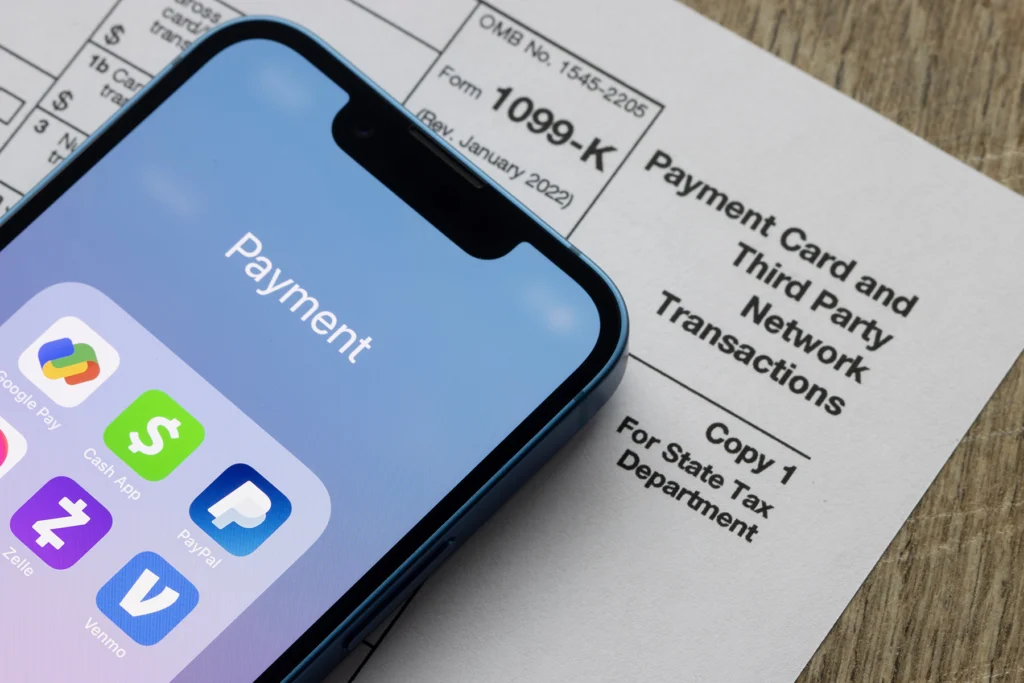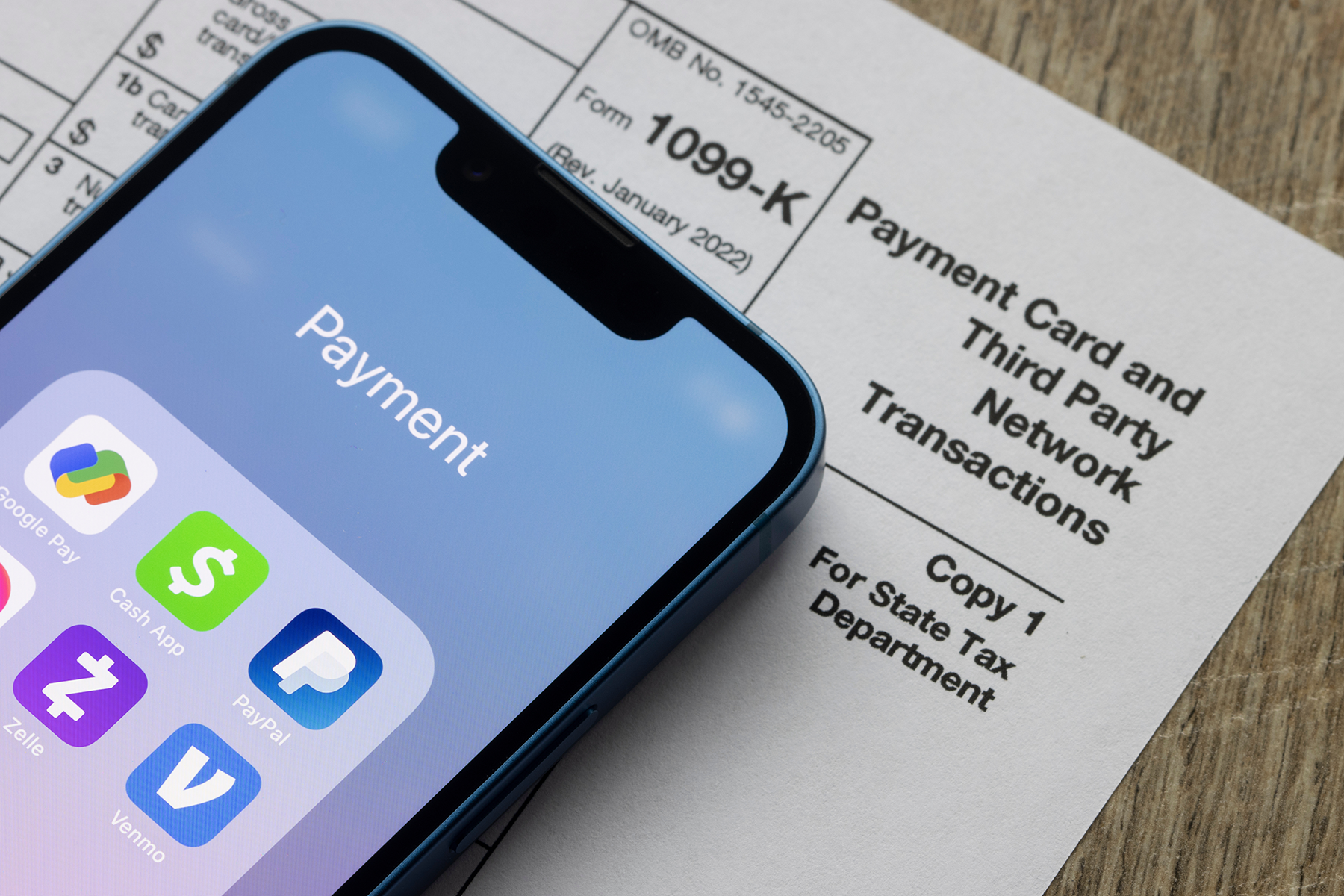1099K Reporting 2024
There has been another delay in the change of the 1099K reporting. It has also caused more confusion for payors to know if they should issue a 1099K or a 1099-NEC to a provider. Let’s chat about how we got here.
Backstory on 1099K Reporting Change
In December 2020, the Treasury Inspector General of Tax Administration (TIGTA) released the results of a study and found that a lot of taxpayers, who did not meet the 1099K threshold, were not reporting their income. You can read more about the study here.
1099K Requirements
Prior to 2022, the requirements for a third party payment settlement entity (PSE) to file a 1099K were if a payee exceeded $20,000 AND 200 transactions ~ § 1.6050W-1(c)(4)(i)(ii). PayPal, Stripe, Amazon, or EBay are examples of PSEs. Here are a few examples of 1099K reporting.
Example 1: Business owner A used Stripe for payment processing. A earned $150,000 but only had 10 transactions. Stripe was not required to issue a 1099K.
Example 2: Business owner B sold on EBay. B had 250 transactions, but only earned $15,000. EBay was not required to issue a 1099K.
Example 3: Business owner C provided a service and used QuickBooks for invoicing. C earned $25,000 and had 201 transactions. QuickBooks was required to issue a 1099K.

Regardless of whether a taxpayer meets the threshold for 3rd parting reporting, the taxpayer is still required to report the income. All income is taxable unless it is specifically exempted by law. ~§61
Taxpayers became more savvy, and actively avoided 1099K reporting by using different PSEs to stay below the reporting threshold. The legal term for that is structuring, which is illegal.
To combat underreporting income, the IRS proposed lowering the reporting threshold to $600 to match the 1099-NEC threshold. PSEs (and the public) lost their minds. Suddenly it was viewed that the government was now coming to tax income that wasn’t previously taxed. That was NEVER the case. Taxpayers were not reporting their income as required.
States 1099K Reporting Requirements
Even though Federal Laws have not changed, some states have reduced their 1099K filing requirements. Washington DC, Virginia, Maryland, are a few states that have a $600 threshold for 1099K filing. You can review a complete list of state 1099K requirements here. That means if you live in one of the states with reduced requirements, you'll receive a 1099K, even though it's less than the Federal requirement.
1099K vs 1099-NEC
As the discussion raged about the 1099K, so did confusion about whether one should issue a 1099-NEC to service/product providers or if the 1099K would suffice. A 1099K covers digital payments like credit cards, debit cards, or on third party platforms like the ones listed above. A 1099-NEC is used for payments through cash, ACH, or paper checks.

Example: Let’s assume you pay a landscaper $650 by check, you may be required to issue a 1099-NEC. Note: 1099-NECs are not issued to corporations.
Let’s assume in the same example you paid the landscaper $650 by credit card. The payment processor is required to issue the 1099K when the user reaches 1099K thresholds. You would not be required to issue a 1099-NEC.
When people are confused about the law, they issue the 1099-NEC to be on the safe side. While that may seem like the best thing to do, it really isn’t. You create an issue of double-reporting when you issue a 1099-NEC that is not necessary.
The IRS looks at the amounts reported on 1099Ks and 1099-NECs and adds them up. If the reported gross income is less than the 3rd party amounts reported, the taxpayer will receive a notice of underreported income (CP2000).
Example: You paid a contractor $20,000 via credit card, and issued a 1099-NEC. The payment processor also issued a 1099K for $160,000 (that includes the $20,000 you paid by credit card). In the IRS’s view, the contractor earned $180,000, when in reality only $160,000 was earned.
If you have questions concerning the 1099K, check out the IRS updated 1099K FAQ.
If you have an issue with unreported income, click here to schedule an appointment with us!
1099K Change for 2023
The IRS issued a press release on October 24, 2022 reminding service providers and other business owners that they may receive a form 1099-K for sales in excess of $600. Third-party payment processors such as PayPal and Stripe will issue 1099-Ks to their customers in early 2023 for sales that exceed $600, regardless of the number of transactions. This will impact tax returns filed in 2023 for Tax Year 2022.
Prior to 2022, third-party payment processors issued form 1099-K if the total number of transactions exceeded 200 AND the total amount of the transactions exceeded $20,000 for businesses. Here are some examples.
Scenario 1: A provider had 3 transactions totaling $25,000. A 1099-K was not issued, because the number of transactions did not exceed 200.
Scenario 2: A provider had 1000 transactions, but the total sales amount was $19,000. A 1099-K was not issued, because even though the number of transactions exceeded 200, the amount of sales was less than $20,000.

As taxpayers became aware of the reporting requirements, many did not report the income on their taxes. There were also taxpayers that used more than one third party processor in order to avoid reporting requirements. This act is called structuring, and it’s illegal.
The American Rescue Plan Act of 2021 (ARPA) lowered the reporting threshold for third-party networks that process payments for those doing business. Now a single transaction exceeding $600 can trigger a 1099-K. But, why?
Who is TIGTA?
While the media will have you believe that all of this happened because of a President and his administration, this change in reporting was coming regardless of who was in office. Here’s why:
On December 30, 2020, The Treasury Inspector General for Tax Administration (TIGTA) released a report: Billions in Potential Taxes Went Unaddressed From Unfiled Returns and Underreported Income by Taxpayers That Received Form 1099-K Income. TIGTA is an independent organization that provides oversight of the IRS.
TIGTA reviewed 2017 tax returns to compile their report. The report states, “TIGTA identified 314,586 business taxpayers with $335.5 billion in Form 1099-K income that appeared to have a filing obligation, but were not identified as nonfilers by the IRS.” …”TIGTA identified a significant number (325,060 business non-filers and 103,991 individual non-filers with $203 billion and $3 billion in Form 1099-K income, respectively) that were not selected to be worked.”
Essentially TIGTA revealed the abuse of 1099-K reporting requirements and recommended the IRS fix it. That’s why the law changed. It had nothing to do with the President.
What about the Zelle “Loophole”?
After ARPA 2021 was released, there were several social media posts created about the ‘Zelle Loophole’. Zelle is a money transfer application that allows you to transfer money directly from one bank to another. It is not a third-party payment processor. Because of that, Zelle currently has no reporting requirements.
Social media influencers were suggesting that using the “Zelle Loophole” was a legal way to circumvent the 1099-K reporting requirements. This is absolutely and unequivocally FALSE.
Using Zelle to earn income and not report it is tax evasion - the illegal non-payment or under-payment of taxes, such as by declaring less income, profits or gains than the amounts actually earned, or by overstating deductions. Zelle’s terms of service also states: “We only grant you a limited revocable license to use the Site for your own non-commercial use subject to rules and limitations.” In other words, you’re not supposed to use it to receive business payments.
Reputable sites were purporting the myth that the IRS was going to “start” taxing money that wasn’t previously taxable. That is inherently false. Do not confuse ‘third party reporting requirements’ with your responsibility to report your income. Section 61(a) of the Internal Revenue Code defines gross income as income from whatever source derived, including (but not limited to) “compensation for services, including fees, commissions, fringe benefits, and similar items.” I.R.C. § 61(a)(1). All income is taxable unless there is a specific provision that says it’s not. You’re even required to report stolen money!
Prior to 2022, you were required to report your income, even though third party processors were not required to issue 1099-Ks. The requirement for the taxpayer to report their income is not new. The change in third party reporting requirements is what’s new.
States were already making the change
There were a few states that already lowered the threshold for reporting. Maryland, Massachusetts, Virginia, Vermont, and District of Columbia had already reduced their reporting requirement to $600 in previous years. There are other states that had lower reporting requirements, as well. Now it will be reported uniformly in all states.
If you have previously avoided reporting your income, we highly encourage you to amend those returns to accurately reflect what you earned. Give us a call if you need help: 877.482.9411.

